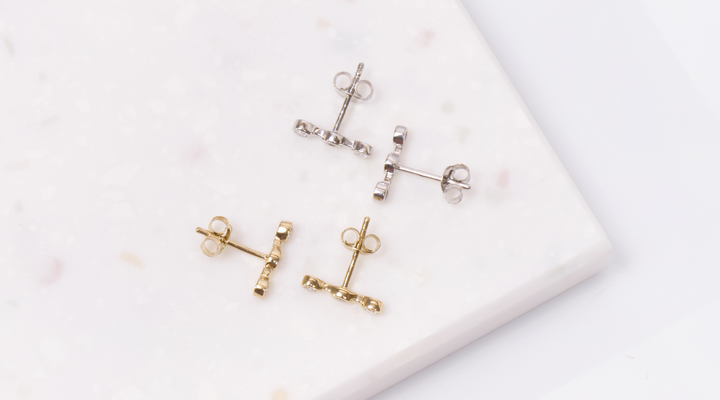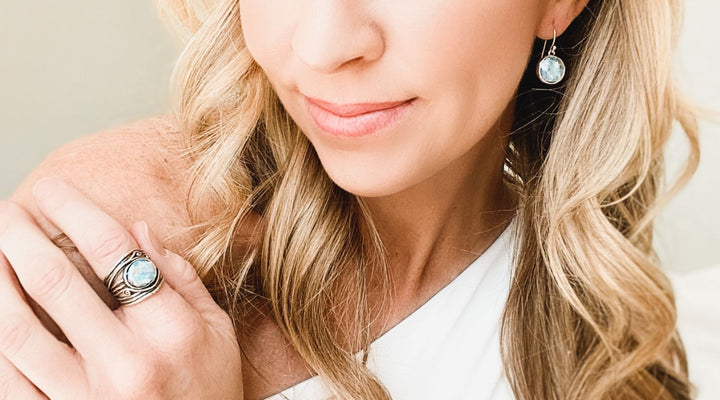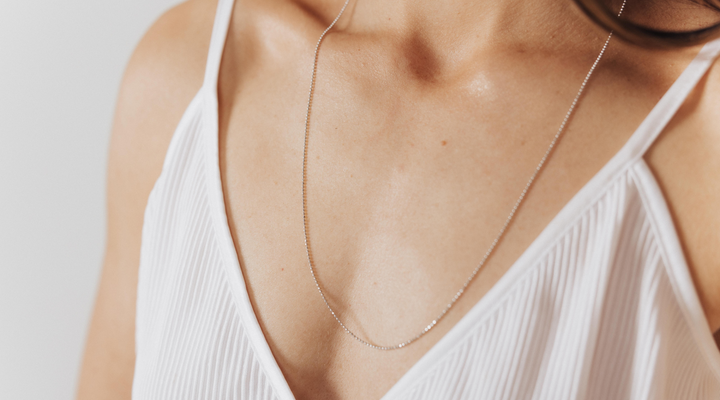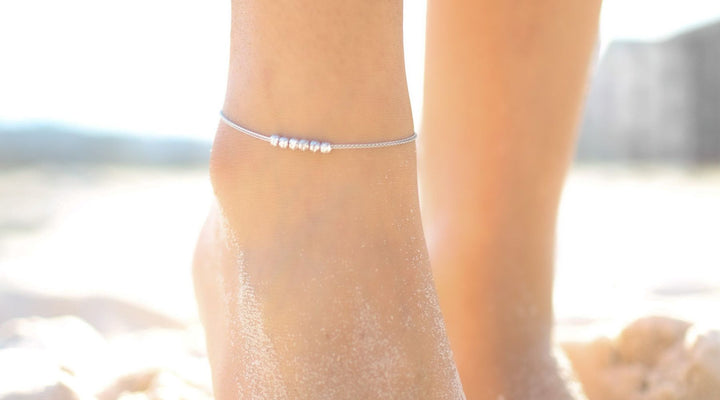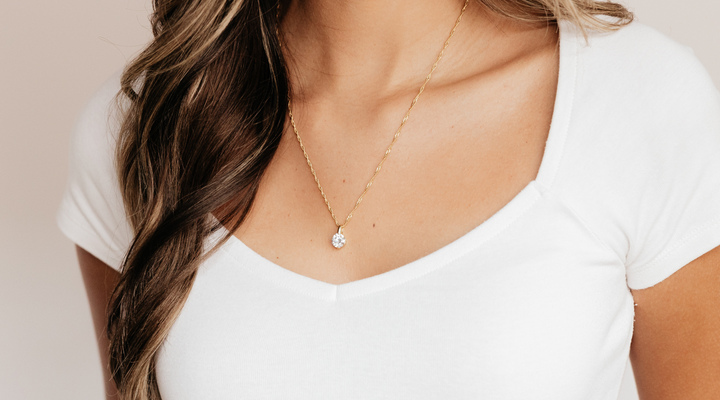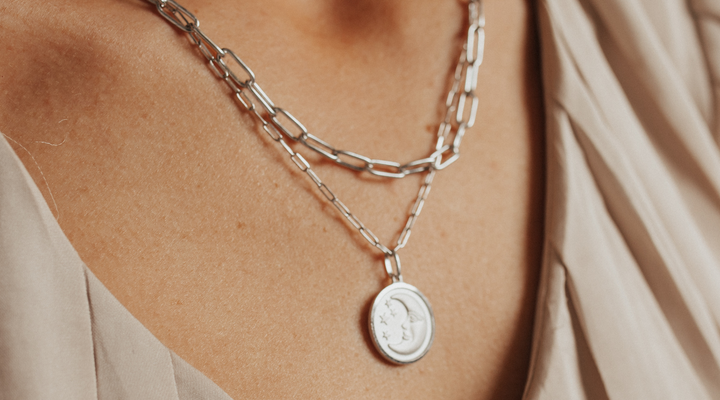.925 Sterling Silver: Definition and Identification
Posted by Deven Davis on
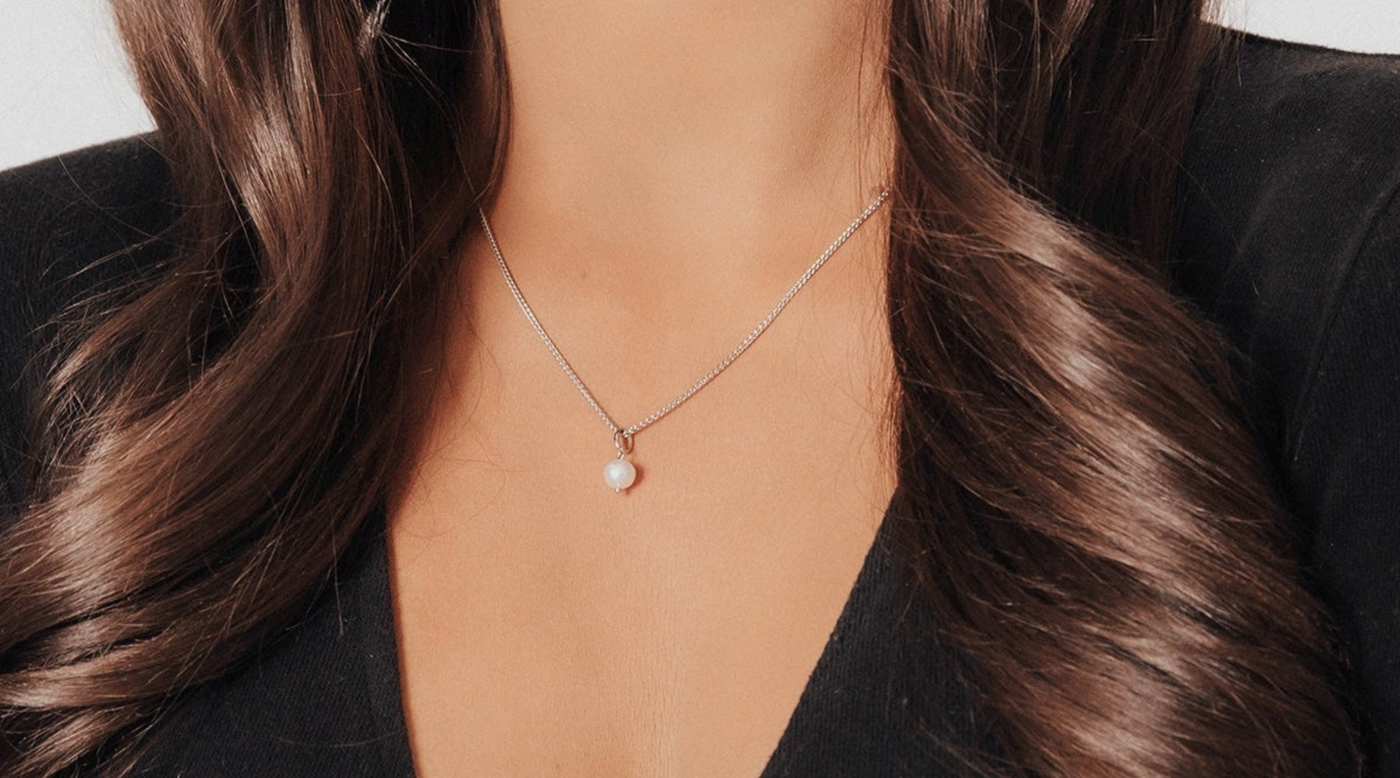
.925 Sterling Silver: Definition and Identification
Keyword(s): .925 sterling silver
For 2023, silver jewelry has been declared one of the most popular trends to wear both on and off the runway. But are you confused about what defines sterling silver jewelry?
.925 Sterling Silver is a unique composition that has become popular for jewelry pieces due to its beautiful shine and durability. Its fine purity degree helps the metal maintain its luster over time.
Get all the facts you need to determine if your piece of sterling silver jewelry is truly authentic. With this comprehensive guide no longer will you have to wonder if your favorite necklace or earrings are genuine.
Learn how to identify real sterling silver so you can keep wearing great-looking accessories without worrying about what makes .925 so unique. Find your complete guide here.
What Is .925 Sterling Silver?
Sterling silver, or 925 silver, is a commonly-used metal alloy in jewelry making. By adding 7.5% copper to 92.5% pure silver, the natural properties of the precious metal are enhanced. Therefore, the naming convention and stamp “925” or the term ".925 composition" refers to the silver content in an ingot or stamped onto jewelry pieces.
Before investing in or reselling 925 silver, it's essential to understand what it is and where it originated from. Gaining greater insight into the production of 925 silver and its unique properties can help us make wise buying choices while avoiding counterfeit items.
Sterling Silver vs .925 Silver
Many people may ponder: What is the difference between sterling silver and 925 silver? The answer is simple - there's none!
Sterling silver jewelry and articles made of 925 are composed of exactly the same alloy blend.
Generally, to be considered sterling-grade in most countries worldwide, this type of metal should achieve a purity rating of 92.5%. So in conclusion, both terms can be used interchangeably by jewelers without any worry about inconsistency or confusion.
Sterling silver is a combination of 92.5% pure silver and 7.5% another base metal, typically copper or nickel referred to as an alloy. This means two or three elements found on the periodic table combined to form something new.
The majority of countries have stringent sterling silver standards that include only up to 7.5 percent copper for it still to be counted as 'sterling', whereas countries like France require stricter guidelines with even higher minimums for pure silver content for it to qualify as sterling-grade material.
Where Does Silver Come From?
Silver has been treasured by humans for thousands of years, and it can be found all over the globe. Volcanic regions and hydrothermal vents are fraught with greater amounts of silver compared to other parts of the world.
Amongst the largest silver mines on Earth, you can find them in countries like the USA, Mexico, Canada, and Bolivia with a few others situated throughout South America.
In contrast to gold, silver is typically present in its trace form or as part of other ore deposits. Moreover, extracting silver usually forms an intrinsic element of a comprehensive mining operation with metal augmenting and supplementing additional endeavors.
Silver can be found in a variety of ore deposits, including Argentite, Galena, Lead-zinc, and Copper ores;as well as the lesser-known Copper-nickel, Chlorargyrite, and Electrum (a gold and silver alloy).
Why Is Silver Jewelry Not 100% Pure?
You may wonder why there isn't a 100 degree of purity in silver jewelry. This is because Silver, in its pristine form, is too delicate to be used for jewelry. To make it more durable and suitable for wearables, we combine silver with other metals to create an alloy we call sterling silver.
Although copper is a soft metal, it can be used to fortify silver and make it simpler to work with. Furthermore, despite its bright red hue, blending 7.5% of copper into fine silver does not impact the ultimate color of your jewelry piece.
Silver can be enhanced through the addition of copper or other metals, however, this also tends to make it more susceptible to tarnishing. Over time, sterling silver pieces will start looking darker in hue and may take on shades of brown or black. If exposed to hot and humid environments, 925 silver items are likely to tarnish much faster than normal.
925 silver tarnish may not be permanent, but it's a great indication that you've bought an authentic product! Plus, the discoloration is effortless to clean - so there’s no need to worry.
Is 925 Good Silver Quality?
Yes. Crafted with the utmost attention to quality, 925 sterling silver is a luxurious type of silver used in jewelry creation and other decorative items. The "925" signifies that the piece consists of 92.5% pure silver, while 7.5% comprises additional metals such as copper added to increase strength and longevity.
This combination makes it a profoundly durable and worthy investment for exquisite pieces you'll treasure forever!
When investing in silver jewelry, it is essential to inspect for a "925" stamp verifying that the piece is crafted from genuine sterling silver. By doing so, you will ensure that your purchase is of superior quality and durability. Not only does this make it more valuable with time, but also guarantees its brilliance won't fade or tarnish over time.
Low-grade variations like 800 or 600 may be less reliable and worthwhile investments - steer clear!
Is 925 Silver Real Silver?
The vast majority of pieces you find online, in retail stores, and on the high street are made from 925 sterling silver. Not to worry though;this type of silver is 100% genuine despite its copper content which helps enhance it! In rare cases, some jewelers do use 99.99% fine silver however that isn't too common these days.
Invest in genuine silver jewelry and be confident that you are getting the best quality. All true silver items should have a small "925" stamp to show their authenticity. 92.5% is considered the gold standard for pure silver products!
Uses for 925 Silver
From adorning earrings, rings, and bracelets to styling fine tableware, 925 silver is the perfect choice for making a statement whichever way you use it.
Sterling Silver has been used over the years to create gorgeous jugs, sugar bowls, and spoons that add an exquisite look to your dinner tables while also being safe for edibles.
Identifying Genuine 925 Silver Jewelry
How do you know you're not just buying random metal coated with silver? If you're ever in the market for 925 silver, these 3 methods can help verify that your piece is legit: Start by looking for a "925" stamp - this shows it's made of 92.5% pure silver!
The Stamp
Genuine jewelry will typically be stamped with "925". Sometimes it might have "ster", and sometimes even ".925"
It is important to always double-check for the next two methods since counterfeit items may replicate this marking. Be sure to verify all three conventions when you encounter a possible sterling silver piece of jewelry.
Do the Buff Test
Gently buff the item with a cloth. Take a light-colored, soft cloth and lightly rub it on the piece of silver multiple times.
925 silver frequently contains copper or other alloys that cause dark marks to form as it oxidizes;you'll be able to see this appear on the fabric after several strokes.
Check if It’s Magnetic
To make sure your piece is genuine, you can use a magnet to test it.
Silver, gold, and platinum are non-magnetic;if your jewelry sticks to the magnet, this means that it is likely, not real.
Other Useful Tests for Authenticity
The three methods we've just mentioned are industry-tried and tested ways for check-in authenticity. Here are some other things you can try to check if your silver is real.
One effortless way to determine if your item is made of sterling silver is by attempting to scratch it with a penny. If the thing scratches quickly and leaves behind an obvious black mark, then you can be assured that it is likely crafted from sterling silver.
You can also test sterling silver using a bell. Tap the silver piece in question on the bell and then hold it. If you don't hear a distinct ring, then it;is most likely not authentic silver.
You can also do a sniff test. If your jewelry is a metallic odor, it's likely due to high concentrations of copper.
The other thing to judge by is the price. Before you purchase any piece of jewelry, regardless if it's silver or not, be sure to double-check the cost. You get what you pay for. If something looks much too good to be true, then that can also apply when looking at its quality!
Does 925 Sterling Silver Rust or Tarnish?

A striking and hardy metal, 925 sterling silver is often employed to craft jewelry or ornamental pieces. From time to time, however, the longevity of silver can be impacted by tarnishing - potentially resulting in a dulling of its luster or even discoloration from black to green hues.
Although 925 sterling silver is a beautiful and classic material, it can have an unfortunate side effect. When left on your skin for too long, the silver reacts with the chemicals in your body and causes green discoloration to appear. This isn't harmful but could be considered unsightly. However, this has led some people to shy away from wearing this jewelry altogether.
If you're looking for quality and longevity, 925 sterling silver is a perfect choice. Yet one must remember that it can easily tarnish and even turn your skin green over time if worn too often or not stored properly.
Therefore, it's best to use this type of silver only on jewelry pieces that are meant to last a short amount of time or be used infrequently.
What Happens if 925 Silver Gets Wet?
When sterling silver is exposed to water, the copper within the alloy will begin to oxidize and corrode. This results in rusting which then leads to a black film that builds upon the surface of your jewelry;making it look dull and grimy.
Beware that sterling silver pieces may corrode and eventually wear away if they come in contact with water frequently. To preserve your favorite sterling silver jewelry items, make sure to keep them dry at all times!
Can I Wash My Hands Wearing 925 Silver?
Definitely, you can clean your hands using 925 sterling silver jewelry. Nonetheless, it is paramount to properly dry them afterward to prevent the discoloration of the precious metal.
Can I Go in the Shower With 925 Silver?
Absolutely! It is totally okay to take a shower with sterling silver jewelry. Just make sure that you rinse off any products from the jewelry after taking your shower. Afterward, dry your items thoroughly and eliminate all remaining water residue for optimal shine and longevity of your precious metal pieces.
Cleaning .925 Silver

If you want to make your silver items sparkle like new, here's what you'll need: a bowl or container filled with warm water, baking soda, and a soft cloth.
First, bring some water to a boil on the stovetop before pouring it into the bowl. Take enough baking soda and stir until it forms a thick paste. Submerge your item in there for about 5 minutes.
Gently rub off any residue using the soft cloth, rinse &buff away! In no time at all, your silver will be gleaming again!
.925 Silver and Allergies?
Silver jewelry is generally considered safe for most people since silver allergies are uncommon. Nevertheless, there may be a few individuals who have delicate skin and could react to certain trace metals contained within the jewelry.
Looking To Buy Genuine .925 Sterling Silver Items?

.925 sterling silver is a unique composition that has become popular for jewelry pieces due to its beautiful shine and durability. Nevertheless, it's useful to be able to identify it and check if what you're buying is genuine.
If you're looking to buy authentic silver jewelry, then visit Roma Designers Jewelry today. We specialize in beautiful pieces crafted from genuine 925 sterling silver with a wide array of stylish items to choose from. Whether you're looking for necklaces, earrings, rings, or other jewelry pieces, Roma Designers Jewelry has something special just for you! Visit the store today.








